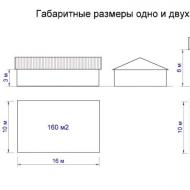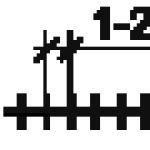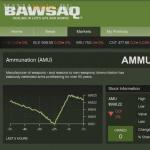
What is the general procedure for accounting for VAT from the advances received? VAT with advances received: wiring, examples
We considered in our consultation. On the peculiarities of accounting for advances issued and obtained in this material.
Listed Advance Supplier: Wiring
When transferring a preliminary payment provider (advance), the wiring in the buyer's accounting is formed, at first glance, the same as when repaying the debt for the goods, works, services:
Debit account 60 "Calculations with suppliers and contractors" - credit accounts of 50 "Cashier", 51 "Current accounts", 52 "Currency Accounts" and others.
However, according to the plan of accounts accounting and instructions for its use (the order of the Ministry of Finance from 31.10.2000 No. 94n) Analytical accounting on account 60 should provide a separate presentation of information including in advance issued.
In addition, general rule Offset between the articles of assets and liabilities in accounting balance It is not allowed (p. 34 PBU 4/99). This means that receivables on issued advances and payables for calculations with suppliers should be shown in the balance sheet separately: in the asset and passive, respectively.
To achieve these goals, account 60 is usually discovered by the "Advances issued" subaccount.
Therefore, the extensions issued wiring will look like this:
Debit account 60, subaccount "Advances issued" - credit accounts 50, 51, 52, etc.
And if an advance payment from the buyer, the wiring will be similar to the recording on repaying the buyer of its debt. However, in the same way as the account 60, to distinguish between the debit and credit balance of the account 62, the sub-accounts are becoming.
So, the extensions received wiring will be like this:
Debit accounts 50, 51, 52, etc. - credit account 62, subaccount "Advances received"
It is clear that the accounting record "Debit 51 - Credit 62" means that the seller received from the buyer cash to the current account.
Note, if an extensance is issued by the supplier, the wiring is made on a separate subaccount to the account 60. But if an advance is issued for travel expenses, the wiring on a separate subaccount 71 "Calculations with accountable persons" is not produced. This is due to the fact that one and the same accountable person can not at the same time be receivable and accounts payable.
Advance test: wiring
When after listing an advance payment, the buyer adopts goods, work and services, it forms an accounts on account loan 60:
Debit accounts 10 "Materials", 41 "Goods", 44 "Sale expenses" and other - credit account 60
If the delivery occurred on the previously issued advance payment, the supplier receivables need to be considered.
Since the advancements on the advancements issued and obtained use individual subaccounts to accounts 60 and 62, respectively, then the advance advances are wiring to close the extension sub-accounts in whole or in part (depending on the prepayment amount).
So, if the previously issued advance payment is credited, the wiring will be internal on account 60. But considering the presence of subaccounts on the accounting of advances issued and obtained values, then the posting provider is usually such:
Debit account 60, subaccount "Calculations for the goods, work, services" - credit account 60, subaccount "Advances issued"
Or: Debit account 60.01 - account credit 60.02
According to Art. 487 GK of the Russian Federation Advance is a complete or partial payment of goods / services until the actual shipment of the seller. Prepayment is taken into account on special accounting subaccounts and is not an income of the supplier applying the accrual method before the organization of its obligations. Consider the nuances of reflection of the prepayment as a business operation, we present the main postings on the advancements issued and obtained.
Note! The legal status of preliminary payment is fixed in the terms of the contract, regulatory regulation The oncoming execution of obligations is carried out in accordance with Art. 328 GK.
Advances received - wiring
Accounting for advances received from buyers at the expense of goods for goods before its shipment is carried out. 62.2 "Advances received". Here reflected prepayments for products in the event that the seller for various reasons violates the implementation period. Ordinary calculations are conducted on subaccount 62.1.
Example
Suppose an enterprise-supplier "Spectr" and the buyer "Title" entered into an agreement for shipping electrical equipment on total 708 000 rubles, including 18% VAT - 108,000 rubles. Under the terms of the transaction, payment is carried out with a 100% prepayment, which entered the score of the spectrum on December 5, and the shipment was made on December 8. Accountant "Spectrum" will reflect the operations like this:
- 5.12 - Advance received from the buyer, wiring d 51 to 62.2 by 708,000.
- 5.12 - Accrued VAT D 76.AV to 68.2 by 108,000.
- 8.12 - Delivery of equipment D 62.1 to 90.1 to 708,000.
- 8.12 - VAT D 90.3 to 68.2 by 108,000 was highlighted.
- 8.12 - Stand in advance, wiring D 62.2 to 62.1 to 708,000.
- 8.12 - Recovered VAT D 68.2 to 76.An by 108,000.
Conclusion - when receiving the advancement of posting in terms of VAT accrual to payment, 2 times are performed: at the time of the receipt of money for the current account and directly during implementation. Then, after shipment, the advance is counted and the amount of VAT is restored from it through the return wiring.
Advances issued - Wiring
The enterprises listed by counterparties-suppliers are taken into account in account. 60.2 "Advances issued", ordinary operations are carried out on subaccount 60.1. In situations where the amounts of prepayments are more sums Implementation, the difference remains with the supplier at the expense of calculations on the planned supplies or returns at the request of the buyer to the specified details.
Example
Suppose, LLC DROSTROY is purchasing materials for production in LLC RPK. On November 25, Dorstroy translated a prepayment in the amount of 354,000 rubles, and the TMC warehouse was received on December 2 in full. Reflect these operations to the accountant "Doros" should be in this order:
- 25.11. - Listed an advance supplier - wiring d 60.2 to 51 to 354,000.
- 25.11 - VAT was taken to reimburse in the presence of an advance invoice from "RPK" D 68.2 to 76.An by 54,000.
- 2.12 - materials were obtained d 10.1 to 60.1 to 300,000.
- 2.12 - VAT D 19.3 to 60.1 by 54,000 was highlighted.
- 2.12 - Advance is held, wiring d 60.1 to 60.2 by 354,000.
- 2.12 - accrued previously reimbursed VAT D 76.An to 68.2 by 54,000.
- 2.12 - Executed VAT is made on the fact of the transaction D 68.2 to 19.3 by 54,000.
When accounting for VAT on prepayments issued, it should be borne in mind that it is possible to reimburse the tax without waiting for the moment of shipment of goods. The exclusive foundations are listed in Art. 172 p. 9. These are the following documents:
- Advance invoice transmitted by the supplier.
- A document confirming the payment of prepayment.
- Treaty indicating the terms of the advance payment.
Attention! When an advance is issued to the supplier (the wiring is above), the invoice is set to the amount of the prepayment, and when shipped, the amount of implementation. At the same time, it is permitted to legally restore VAT and with full termination of the transaction, which previously listed an advance with VAT.
Advance reports - wiring in accounting
In addition to calculations with counterparties - buyers and suppliers, the company regularly issues funds to its employees. As competently execute accounting wiring by advance reports? And is it true that the sum of advance report deducted from profit? Consider a specific example.
An example of calculations with accountable persons in terms of issued advances:
The company "Pit Stop" issued a report to Kovalev E.I. on a business trip 8000 rubles. Kovalev spent 5400 rubles, and unused funds in the amount of 2600 rubles. He returned to the cashier. Accountant will need to do the following:
- An advance payment for travel expenses - wiring d 71 to 50 to 8000.
- Returned the residue of unspent money - wiring d 50 to 71 to 2600.
The accountable person is obliged to report on the expenditure of funds within 3 days after the end of the issuance time, and in case of stay on a business trip after the return of the employee. Specific deadlines establishes the head of the organization. If the employee spent more than the funds issued without good reason and is not able to report on them, the surplus is held from its income. Boo Postings on advance reports in this situation look like this:
- It is reflected non-refundable amount - d 94 to 71.
- The shortage of employee earnings is kept - d 70 to 94, but not more than 20% monthly.
Reflection of leasing advances
Regulatory regulation of leasing transactions is regulated by law No. 164-ФЗ dated 29.10.98. All payments made to the execution of the obligations of the lessor are considered prepayment. Advance payment Under the lease agreement, the wiring on which is carried out according to the account plan No. 94n, it is recommended to be carried out on account. 76 with the creation of a separate subaccount.
Berezkin I.V.
The provisions of the contracts of contracts (agreements) often provides for production advance payments and (or) the preliminary payment of goods supplied (the work performed provided).
The conditions for preliminary payment, in particular, the goods under the contract of sale are governed by the provisions of Article 487 of the Civil Code of the Russian Federation.
The nomination of the requirements for preliminary payment of products and (or) the advancement of the upcoming work (services) is to ensure the implementation of the terms of the concluded agreement. It is assumed that if the buyer in prior order paid products (work, services), then this is to some extent indicating the readiness of the buyer to fulfill the conditions under the contract. In addition, the advancement intends to provide the seller to the means necessary for the manufacture of products, performing work, the provision of services.
In practice, the conditions for preliminary payment of products prepared for shipment provide for advancepayments Buyer up to 100 percent of the cost of products. In terms of the work performed (services provided), it is usually spent on the allocation of advances within 30-50 percent of the cost of work (services).
Agreements of the Party agreement may provide for any pre-payment (Advance), unless individual requirements in this part are imposed by applicable law.
Strictly regulated by the allocation of advance payments by institutions funded from funds federal budget.
For example, government decree Russian Federation Of June 22, 1994 No. 745 "On the advancement of contracting facilities at construction facilities for federal state needs" it was determined that the advancement of part of the contractual work under contracts (contracts) with contracting organizations at construction and facilities funded at the expense of the federal budget of the Russian Federation is up to 30 percent of the limit installed capital investments On these buildings and objects.
In cases where the amount of advance payments for one or another agreements (agreements) are not governed by the provisions of regulatory legal acts, the parties have the right to independently determine the size and procedure for allocating these payments.
It should be borne in mind that if the seller who received the preliminary payment amount does not fulfill the duty on the transfer of goods in set time, The buyer's organization in accordance with Article 487 of the Civil Code of the Russian Federation has the right to demand the transfer of the paid product or return the amount of the preliminary payment for the goods not sold by the Seller.
In addition, in the case where the seller does not fulfill the duty on the transfer of a pre-paid product and otherwise not provided for sale contracts, the amount of payment is subject to payment for the use of other people's funds (Article 395 of the Civil Code of the Russian Federation) from the day when the goods transfer under the contract It should have been made, before the day of transfer of goods to the buyer or returning the amount pre-paid. At the same time, the contract may be provided for the obligation of the Seller to pay interest on the amount of preliminary payment from the date of receipt of this amount from the buyer.
With the concept of an advance, the concept of a deposit under the article 380 of the Civil Code of the Russian Federation is understood as the money amount issued by one of the Contracting Parties to the Treaty of Payments to the other Party, to the proof of the contract concluding and to ensure its execution.
The agreement on the setting regardless of its amount must be issued in writing.
If there are doubts whether the amount paid in the account due on the part of the payment agreement, a deposit, this amount is considered to be paid as an advance, unless otherwise proven (paragraph 3 of Article 380 of the Civil Code of the Russian Federation).
The main difference of the deposit from the advance is the fact that in case of non-fulfillment of the contract, it remains at one of the parties to the contract. If the contract is responsible for non-fulfillment of the contract, which remains, it remains at the other side, if the party received the deposit, it is obliged to pay the other party a double amount of the deposit (article 381 of the Civil Code of the Russian Federation). Moreover, the party is obligated to compensate for the failure to fulfill the contract to compensate for the other side of the losses with a credit amount of the deposit, unless otherwise provided in the contract.
It should be borne in mind that the subject of consideration of this publication is not advance payments for taxes and fees (income tax, unified social tax, etc.), which organizations should be paid in accordance with the provisions of tax legislation.
Not considered in this article also advances issued by employees at the expense of wages.
Accounting amounts of advance payments
According to the provisions of the account plan (instructions for the application of the account plan), accounting accounting for the amounts of received and (or) advanced advances are organized on balance sheet accounts related to the calculations for shipped products (work performed, services rendered).
For accounting amounts of advance payments (pre-payment), separate accounts are open to the balance sheet accounts.
In particular, amount issued suppliers and contractors avansov Considered separately on the balance sheet of 60 "Calculations with suppliers and contractors", amounts received advances and pre-payment from buyers and customers - on a separate subaccount to the balance sheet account 62 "Calculations with buyers and customers"
If calculations with counterparties are reflected in the accounting accounting of the Organization using the Balance Account 76 "Calculations with different debtors and creditors", separate subaccounts on accounting of the amounts issued and (or) received advances can also be discussed.
The detackets of accounting may be assigned the following names - "Calculations on the advancements issued", "calculations on the advances received", etc.
Considering the provisions of Article 6 of the Accounting Act and the standards of PBU 1/98, adopted in each organization, the work plan for accounting accounts containing synthetic and analytical accounts is necessarily approved accounting policies Organizations used for accounting purposes. It is in the work plan of accounts that subaccounts are provided for accounting for the sums of the (issued advances issued).
When developing a working plan of accounts, the requirements of the Instructions for the application of the Organization and Management Accounts Plan should be taken into account analytical accounting According to the relevant balance sheet account.
For example,according to explanations to the balance sheet account 62, the construction of analytical accounting should ensure the possibility of obtaining the necessary data on: to buyers and customers on settlement documents, which have not come; buyers and customers for not payable for settlement documents; advances received; promissory bills, the transfer of funds for which they did not come; bills discounted (taken into account) in banks; bills for which cash did not arrive on time.
When reflected economic operations upon receipt and (or) the transfer of advance payments should take into account the norms of PBU 9/99 and PBU 10/99, according to which these amounts do not belong respectively to income amountsfrom sales of products (works, services) and expenses of the organization, related to the manufacture and sale of products (goods), the performance of work, the provision of services.
If, under the terms of the concluded contracts (agreements), the organization lists the sum of the advance against the upcomingsupply of products (execution of work, service provision), they cannot be reflected in the organization's expenses in accordance with paragraph 3 of PBU 10/99. Only on the fact of the delivery of products (execution of work, service provision), the corresponding amounts are recognized as the cost of the organization.
At the same time, the following entries are drawn up in the accounting records:
debit account 60, subaccount "Calculations on advance issued" credit accounts 51 "Settlements", 52 "Currency Accounts" and others - transmission of funds in the order of advance payments for the forthcoming supplies of products performed by construction and other works provided services;
debit account 76, subaccount "Calculations on the advancements issued" credit accounts 51, 52, etc. - transfer of funds in the order of advance payments by calculations taken into account on the balance sheet account 76;
debit account 08 "Investments in fixed assets»Account credes 60, 76 - the value of the facilities of fixed assets, intangible assets, accepted works on the construction of objects and others;
debit accounts 10 "Materials", 41 "Goods" Accounts Credit 60, 76 - the cost of acquired material and industrial stocks;
debit accounts 20 "Basic Production", 23 " Auxiliary production", 25" general production costs ", 26" General running costs", 29" Serving production and farms ", 44" Sale expenses "credit Credit 60, 76 - the cost of accepted works (services);
debit accounts 60, 76 credit accounts 60, subaccount "Calculations on the advancements issued", 76, subaccount "Calculations on the extensions issued" - the sums of products issued for the upcoming supplies, performed by the work provided by the advances provided;
debit accounts 60, 76 credit accounts 51, 52 - the final (offset amounts issued by advances) payment of products (works, services);
debit accounts 51, 52, etc. Credit accounts 60, subaccount "Calculations to the advancements issued", 76, subaccount "Calculations on the extensions issued" - Counterparties returned to the sums of untreated advances.
If we are talking about the advanced payments received, then according to paragraph 3 of PBU 9/99 income organizations cannot be recognizedreceipts are fine pre-payment Products (goods, works, services), advances on payment of products (goods, works, services), deposit.
Only on the fact of reflection in the accounting of sales of products (goods, works, services), the amount of advanced advances can be reflected in the company's revenues. At the same time, the following entries are issued in accounting:
debit accounts 51, 52, etc. Credit account 62, subaccount "Calculations to the extensions received" - the amounts of advances received from buyers and customers for the upcoming supplies of products (goods, works, services);
debit accounts 51, 52, etc. Credit account 76, subaccount "Calculations on the advances received" - the sums of advances received from counterparties, calculations on which are reflected in the balance sheet account 76 (for example, in terms of rent and other);
debet accounts 62, 76 credit account 90 "Sales", subaccount "Revenue" - revenue from sales of products (goods, works, services);
debit accounts 62, 76 account credit 91 "Other income and expenses", subaccount "Other income" - revenues in terms of operating and non-engineering operations of the organization;
debit accounts 62, subaccount "Calculations on the advances received"; 76, subaccount "Calculations on the advances received" credit accounts 62, 76 - the amounts of advances obtained under the forthcoming supplies (goods, works, services) of advances are credited;
debit accounts 51, 52, etc. Credit accounts 62, 76 - final payment by buyers, customers, other counterparties of products (goods, works, services);
debit accounts 62, subaccount "Calculations on the advances received", 76, subaccount "Calculations on the advances received" credits of accounts 51, 52, etc. - The sums of undeveloped advances are returned.
It must be borne in mind that in accordance with the tax legislation, the amount of advances received are included in tax base on value added tax. This is dedicated to a separate section of publication.
Budgetary institutions are reflected in accounting by the amounts of issued (received, objected) advances are guided by the provisions of instructions on accounting in budgetary institutions, approved by order Ministry of Finance of Russia dated December 30, 1999 No. 107N (as amended and additions), and with the transition during 2005 to budget accounting- provisions of instructions for budget account, approved by the Order of the Ministry of Finance of Russia dated August 26, 2004 No. 70N.
At the same time, they should also take into account the provisions of the instruction on the procedure for opening and conducting the authorities of the Federal Treasury of the Ministry of Finance of the Russian Federation facial accounts To account for operations to execute the costs of the federal budget, approved by the Order of the Ministry of Finance of Russia dated December 31, 2002 No. 142n (as amended changes and additions), according to which the return amounts accounts receivableformed from the recipient of funds in the process of executing the costs of the federal budget of the current fiscal year, accounted for on the personal account budget institution How to restore cash flow.
The sum of the return of receivables of the past years, received on the personal account of the recipient of funds, no later than three days from the date they were reflected on the personal account of the beneficiary of funds are sent to the federal budget revenue.
Questions for the calculation of value added tax
According to the provisions of paragraph 1 of Article 162 of the Tax Code of the Russian Federation, the amounts of advance or other payments received on the account of the upcoming supplies of goods, and the provision of services are included in the value added tax base. The specified "other" payments also include the amounts of the obtained deposit, but not only when the deposit amount provides a security function under the contract (transaction).
The exception is only advance payments, Obtained at the expense of the upcoming deliveries of goods, performance of work, the provision of services taxed by the tax rate of 0 percent in accordance with subparagraphs 1 (goods exported in the customs regime of exports, subject to submission to the tax authorities of the documents provided for in Article 165 of the Tax Code of the Russian Federation) and 5 (works (services) performed (rendered) directly in outer space, as well as a complex of preparatory groundwork (services), technologically determined and inextricably linked with the performance of work (provision of services) directly in outer space) of paragraph 1 of Article 164 of the Tax Code, the duration of the production cycle The manufacture of which is over six months.
It should be borne in mind that the list of works (services) performed (rendered) directly in outer space, as well as in the implementation of a complex of preparatory groundwork (services), technologically determined and inextricably linked with the performance of work (provision of services) directly in outer space, The duration of the production cycle of the implementation (provision) of which is over 6 months, approved by the Decree of the Government of the Russian Federation of July 16, 2003 No. 432, and the list of goods, the duration of the production cycle of which is over 6 months - Decree of the Government of the Russian Federation of August 21, 2001 . № 602 (as amended changes and additions).
In turn, the same decree of the Government of the Russian Federation dated August 21, 2001 No. 602 (as amended changes and additions) approved the procedure for determining the tax base when calculating the value-added tax on advance or other payments received by exporting organizations to the upcoming supplies of goods taxed by the tax rate of 0 percent, the duration of the production cycle of which is over 6 months.
It must be borne in mind that the point in the question of inclusion of the amounts of advanced payments in the VAT tax base was put by the Higher Presidium Arbitration Court Of the Russian Federation (see Decree of August 19, 2003 No. 12359/02) and the Constitutional Court of the Russian Federation (see Definition of March 4, 2004 No. 148-O). Before the adoption of these judicial acts, there were various opinions regarding the problem of taxation of advance payments, but it is currently deciding unambiguously - pay tax with specified amounts.
The provisions set forth in the definition of the Constitutional Court of the Russian Federation of September 30, 2004 No. 318-O "On the refusal to consider the complaint of the Federal State Unitary Enterprise" Angarsk Electrolysis Chemical Plant "to violate the constitutional rights and freedoms of sub-clause 1 point 1 Article 162. Tax Code Russian Federation".
It is in this definition outlined what should be understood under the advance paymentsfor the purpose of applying the provisions of tax legislation. Under them should be understood by payments received by the taxpayer at the expense of the upcoming deliveries of goods (work, the provision of services). Organizations should increase the tax base of VAT on those money sumswhich are obtained by advance (as a prepayment), that is until the actual shipment of goods (work, providing services) to buyers. Those cash that was received by the organization after the date of the actual shipment of goods (performance of work, the provision of services) to buyers cannot be considered as advance payments, since the date of receipt of these funds follows the main date regarding which certain payments are considered as advances. That is, the date of the actual shipment of goods (performance, service provision).
Based on the provisions of Chapter 21 of the Tax Code of the Russian Federation, when considering issues of taxation and reflection in the value added tax declaration, the amount of advance payments should be borne in mind that having received Advance platesor prepayment at the expense of the upcoming supplies of goods (performance, service provision) The organization is obliged to include these amounts in the tax base,related to the tax period in which actually these payments were obtained (see the letter of MNS of Russia of September 24, 2003 No. OS-6-03 / 994 "On the procedure for calculating and paying value added tax"). It does not matter when the obligations of the seller's organization will be fully fulfilled, arising from the contract with the buyer of goods (works, services), and the obligations of the Buyer on the payment of these goods (works, services).
When receiving an organization of advance payments in foreign currency At the expense of the upcoming supplies of goods (performance, provision of services), the indicated amount is recalculated in rubles at the rate of the Bank of Russia at the date of receipt of advance payments.
In accordance with the provisions of paragraph 4 of Article 164 of the Tax Code of the Russian Federation upon receipt of funds in the form of advance or other payments, the amount of value added tax is determined by the estimated method. At the same time, the tax rate is defined as the percentage of the established tax rate to the tax rate adopted for 100 and increased for the appropriate amount of the tax rate.
Example 1.
At the expense of the upcoming supply of goods (performance, service, service), the seller's organization received from the buyer an advance payment in the amount of 560000 rubles.
Suppose that the goods supplied (the work performed, the services provided) are subject to the following tax rates:
1) 18 percent.
In this case, the amount of value-added tax with advance payments will be 85424 rubles. (560000 rub. X (18% / (100% + 18%)).
2) 10 percent.
In this case, the amount of value added tax with advance payments will be 50909 rubles. (560000 rub. X (10% / (100% + 10%)).
In the prescribed manner, the calculated tax amounts must be paid to the budget.
In the future, the amount of value-added tax, accrued by the Organization with the amount of advance and other payments received at the expense of the upcoming deliveries of goods (work, the provision of services) to be taxed, upon subsequent shipment of goods (work, the provision of services) is subject to deduction.
So, in accordance with paragraph 8 of Article 171 of the Tax Code of the Russian Federation, the amount of tax calculated and paid by organizations with the amounts of advance or other payments received on the account of the upcoming deliveries of goods (works, services) are deducted.
These deductions are made in the manner prescribed by clause 6 of Article 172 of the Tax Code of the Russian Federation, that is, after the date of the implementation of the relevant goods (work, the provision of services).
Example 2.
According to the terms of the concluded between the organizing-seller and the organization-buyer of the contract, the buyer undertakes to list 40 percent of the amount of the contract (1416,000 rubles, incl. VAT 18% - 216,000 rubles) as an advance under the contract.
After delivering the products and signing the appropriate acceptance of acceptance transmission, a complete final settlement under the contract is carried out.
Cost price realized products amounted to 720000 rubles.
In the accounting accounting of the Seller's organization should reflect the following accounts for accounting accounts:
debit account 51 account credit 62, subaccount "Calculation of advances received" - 566400 rub. (1416000 rub.- 40%) - the sum of the advantage received from the buyer under the upcoming supply of products;
debit account 62, subaccount "Calculations on the advances received" credit account 68 "Calculations for taxes and fees", subaccount "Calculations on VAT" - 86400 rub. (566400 rub.- 8% / 118%) - VAT with the amount of the advance payment;
- 86400 rub. - payment of VAT sums from advance payments to the budget;
debit account 62 credit account 90, subaccount "Revenue" - 1416000 rub. - revenue from the sale of products (with VAT);
debit account 90, subaccount "Cost of sales" Credit account 43 " Finished products» - 720000 rub. - the cost of realized products;
debit account 90, subaccount "Value Added Tax" Credit Credit 68, subaccount "Calculations on VAT" - 216000 rub. - VAT from revenue from sales;
debit account 90, subaccount "Profit (loss) from sales" account credit 99 "Profits and losses" - 480000 rubles. (1416000 rub. - 216000 rub. - 720000 rubles.) - Profit from the sale of products;
debit account 62, subaccount "Calculations on the advances received" credit account 62 - 566400 rub. - the sums received from the buyer of the advances are credited;
debit account 68, subaccount "Calculations on VAT" Credit Credit 62, subaccount "Calculations on the extensions received" - 86400 rub. - VAT sums are credited with advance payments;
debit account 51 credit account 62 - 849600 rub. (1416000 rub. - 566400 rubles) - the receipt of funds from the buyer in the final settlement under the contract;
debit account 68, subaccount "Calculations on VAT" credit account 51 - 129600 rub. (216000 rub. - 86400 rub.) - Payment of VAT from revenue from sales, minus VAT sums previously paid from advance payments under the contract.
The procedure for making a deposit of VAT sums from advance payments, The goods received at the expense of the future export deliveries, clarified in the letters of the Ministry of Anga of Russia dated June 29, 2004 No. 03-03-06 / 1461/3 "On the adoption of the amount of VAT paid with the amounts of advance payments received in the account of future export supplies of goods , the duration of the production cycle of which is over six months, "dated September 24, 2004 No. 03-04-08 / 73" On the calculation of VAT in the implementation of goods for export ".
When selling goods (works, services), taxable VAT at a rate of 0 percent, to confirm the validity of the application of the tax rate of 0 percent and tax deductions The tax authorities submit to the documents provided for in Article 165 of the Tax Code of the Russian Federation. These documents in accordance with paragraph 10 of Article 165 of the Tax Code of the Russian Federation are submitted by organizations at the same time as the submission of the tax declaration established by paragraph 6 of Article 164 of the Tax Code of the Russian Federation.
According to paragraph 9 of Article 165 of the Tax Code of the Russian Federation in the sale of goods (works, services) at the tax rate of 0 percent (except for those of paragraph 1 of paragraph 1 of Article 164 of the Tax Code of the Russian Federation), the moment of determining the tax base for the specified goods ( Works, services) is the last day of the month, in which a complete package of documents provided for in Article 165 of the Tax Code of the Russian Federation is collected.
In the event that a complete package of documents provided for in Article 165 of the Tax Code of the Russian Federation, not assembled on the 181st day, counting from the date of the placement of goods under the customs regimes of exports, transit, movement of supplies, the moment of determining the tax base at the specified goods (works, services) is determined In accordance with subparagraph 1 of paragraph 1 of Article 167 of the Tax Code of the Russian Federation, that is, on the day of shipment (transmission) of goods (works, services).
Thus, it is when presenting to tax authority documents provided for in Article 165 of the Tax Code of the Russian Federation, on the period established by the same article of the Tax Code of the Russian Federation, simultaneously with tax Declaration For the tax period in which the full package of these documents is assembled, an organization in confirming the validity of the application of the tax rate of 0 percent and tax deductions is entitled to present the amount of VAT, calculated and paid with the amounts of advance payments obtained in the account of the upcoming export deliveries of goods.
As explained in the letter of the Ministry of Finance of Russia dated September 24, 2004 No. 03-04-08 / 73, 180 days of submission of documents confirming the legitimacy of the zero tax rate during the sale of goods for export, it is considered from the date of the regional mark customs authority On the cargo customs declaration "Issue is allowed."
Registration of invoices for calculations, related to receipt of advance payments, it is made taking into account the provisions of clause 18 of the Rules for conducting accounting magazines received and invited invoices, books of purchases and books of sales in the calculations of the value-added tax approved by Decree of the Government of the Russian Federation of December 2, 2000 No. 914 ( as amended changes and additions).
Upon receipt of funds in the form of advance or other payments to the upcoming deliveries of goods (execution of work, service), the seller includes an invoice that is registered in the sales book of the seller's organization and the buyer is not transmitted (that is, it is underway on the "internal" account -Pature).
The procedure for issuing an invoice for the amount of the advance is clarified in the letter of the Department of Tax and Customs and Customs and Tariff Policy of the Ministry of Finance of Russia dated August 25, 2004 No. 03-04-11 / 135 "On Consideration of an invoice for an amount of an advance".
In particular, when drawing up an invoice According to the advanced advances, this amount of tax is reflected in column 9 "The cost of goods (works, services), total taking into account the tax", and Count 5 "The cost of goods (works, services), without tax" is not filled.
When registering in the book of sales of invoices,circuited by the Organization-Seller upon receipt of advances to the upcoming deliveries of goods, performing work or the provision of services, the Count 5a "Cost of Sales without VAT" is not filled.
In the future, after the supply of goods (performance, service provision), the sellers issued and registered in the sales book when receiving an invoices of invoices are registered in the shopping book with an indication of the appropriate amount of value added tax for the deduction of taxes. Such an order is provided for in paragraph 13 of the Rules approved by the Decree of the Government of the Russian Federation of December 2, 2000 No. 914.
At the same time, according to the Ministry of Finance of Russia, in the column 5 "Name of the Seller" books of shopping indicates the name of the seller of goods (works, services), which paid the VAT in the budget with the amount of advanced payments received.
When drawing up declarationsaccording to the value added tax (forms approved by the Order of the Ministry of Anga of Russia dated November 20, 2003 No. BG-3-03 / 644 "On approval of forms of declarations on value added tax") The amount of tax payments are reflected in the rows 260-290 of the Declaration, And in part of the amounts of tax from the revenue from the sale of goods (works, services) - on strings 020-060 declaration.
If the sums of the advance and implementationwe took place in the same month (quarter), the tax base is reflected both in terms of advance payments, and in terms of revenue from sales (in the latter case, in full, without decreasing the amount of the advancement received before this). Double taxation is eliminated Using the deduction of VAT sums from advance payments, reflected in line 340 declaration.
As noted above, the amount of the deposit should not be included in the VAT tax base if they have a security function under the contract (transaction). Only if, according to the results of the contract (transaction), the amount of the deposit can be recognized as an advance payment, it is subject to inclusion in the VAT tax base on the conditions similar to the advance payments.
If, for example, The organization announced a competition for the conclusion of a contract, according to which each of the participants makes the amount of the deposit, then in this case it has a security function. Only in terms of the amounts received from the organization - the winner of the competition, the amount of the received deposit can be recognized as an advance payment with its inclusion in the VAT tax base. The amounts of deposit on other participants in the VAT tax base should not be included, unless its amounts are returned to the participants.
Considering the fact that the amounts of the deposit can only have a security feature, when organizing accounting, such amounts should ensure their separate accounting from advance payments:
debit account 51 credit account 76, subaccount "Providing commitments received" - admission of amounts as a deposit that performs a security function;
debit account 76, subaccount "providing commitments received" credit of account 62, subaccount "Calculations on the extensions received" - recognition of the amounts of the deposit in the quality of advance payments;
debit account 62, subaccount "Calculations on the advances received" credit account 68, subaccount "Calculations on VAT" - VAT with sums of advance payments.
Issues calculating tax on the profit of organizations
According to subparagraph 1 of paragraph 1 of Article 251 of the Tax Code of the Russian Federation in determining the tax base for income tax revenues are not taken into accountin the form of property, property rights, works or services that are obtained from other persons in order of pre-payment goods (works, services) organizations from the number of taxpayers of the specified tax, defining income and expensesby the method of accrual.
Thus, directly about the inclusion of the amounts of received advance payments in the tax base for income tax can only be conducted in the event that the organization determines income and expenses For income tax purposes on the cash method.
As noted in section 4.1 Methodical recommendations For the application of chapter 25 "Tax of Profit Organizations" Part of the second Tax Code of the Russian Federation (approved by the Order of the Ministry of Education and Commission of Russia of December 20, 2002 No. BG-3-02 / 729), applying the Cash Method of Organization The amounts received amounts of advance payments reflected in the composition of Revenues at the time of their receipt. This follows from the provisions of paragraph 2 of Article 273 of the Tax Code of the Russian Federation.
It should be borne in mind that according to the provisions of Articles 129 and 130 of the Civil Code of the Russian Federation, funds also relate to property, and therefore the above provisions fully relate to the funds received.
Accordingly, the question is solved with the adoption of the tax base for the income tax base of the advance payments paid.
If the organization defines according to its accounting policies For tax purposes income and expenses by the method of accrualthe amount of pre-payment (advance) should not reduce the tax base for income tax (paragraph 14 of Article 270 of the Tax Code of the Russian Federation).
In this case, relevant costs reduce the tax base on the fact of implementation for the organization of work, the provision of services, consolidation material resources etc. That is, the cost of production (works, services) is taken into account for the purposes of taxation of that reporting (tax) period, to which they relate, regardless of payment time - preliminary or subsequent.
When applying the organization cash method Expenses can be recognized only those of them that are actually paid (paragraph 3 of Article 273 of the Tax Code of the Russian Federation). For the emergence of consumption, in addition to the actual payment of costs, it is necessary to terminate the counter commitment.
Electricity consumption without a contract: how to avoid negative legal consequences. Organizer: Higher School of State Audit MSU
Each enterprise keeps accounting calculations with suppliers and contractors. Calculations with suppliers include not only, but also the provision of various kinds of services and work. Features of the organization's interaction with the supplier disassembled in this article. There are tables with wiring.
Video lesson. "Account account 60: subaccount, wiring"
The video lesson explains in detail how to keep accounting accounts 60 "Calculations with suppliers", subaccounts, examples of the compilation of the main postings and operations are considered. ⇓
Accounting for calculations with suppliers. Account 60.
All interactions with suppliers are taken into account on account 60 "Calculations with suppliers and contractors." The debit reflects the transfer of payment to suppliers for goods, work, services, on the loan - the debt of the organization before the supplier.
Briefly about the account 60 "Calculations with suppliers and contractors." Typical wiring Accounts 60.
Wirings on account 60
| Debit | Credit | Name of operation |
Received goods to a warehouse from the supplier |
||
Discarded materials from the supplier |
||
Received the mainstream from the supplier |
||
Provision of services, work |
||
VAT has been highlighted according to the material values \u200b\u200bor rendered services (if the supplier allocates VAT) |
||
Redean debt before the supplier |
||
It is arranged (if the supplier is both a buyer at the same time) |
Accounting issued by advances
If the advance payment is transferred to the supplier of an advance, then for its accounting on account 60, the subaccount "Advance Issued" opens. At the same time in accounting reflects the receipt of D60 subaccount "Advance Issued" K50.
After the supplier or contractor will put material values Or will provide services for which the advance payment was listed, an advance payment of an advance payment of D60 K60 subaccount "Advance Issued" is being credited.
For clarity to highlight postings when taking issued advances In a separate tablet:
Accounting bill issued to debt
To account for bills issued to ensure debt, on account 60 "Calculations with suppliers and contractors" offers subaccount "Bill issued".
Wiring on accounting bills issued
This article specifies wiring for the main operations produced by account 60 "Calculations with suppliers and contractors".
Calculation of value added tax takes place either on the day of shipment (receiving) of the goods, either on the day of payment, depending on what event has come before. As VAT is recorded, provided that the shipment (receipt) of the goods takes place earlier than its payment, we looked at, there are also wiring, which should be reflected in accounting.
If the goods are first paid, and then it is already shipped, the accounting and accrual of VAT will be somewhat different. In the article we will deal with the calculation of VAT from the received and issued advances, how the wiring must be performed in which sequence. For consolidation we will analyze examples.
VAT payers regularly face the need to allocate VAT from the cost submitted by the supplier, or charge it to the amount. It will help to correctly calculate.
VAT with received advances
The organization implements the goods to the buyer, the buyer at the expense of future delivery lists the organization an advance. How and when to accruize VAT? Accounting for settlements with buyers When receiving prepayments from them, we also considered in.
On account 62 "Calculations with buyers" there is a subaccount of 2 "Advances received", and at the subaccount 1 will be recorded for payment for the goods shipped.
Upon receipt of the prepayment from the buyer, the organization performs the receipt D51 K62.2.
The Tax Code of the Russian Federation requires an accrued from the received advance, for this, VAT is allocated from the amount received (how to do this). To account for tax from advances, I will open an additional account 76 subaccount "VAT with advances". On the day of obtaining a prepayment from the buyer, the wiring is reflected on the accrual of VAT with the prepared payment of D76.DS with the advances K68.DS.
After some time, the organization shipments the goods received by the prepayment of the prepayment of the prepayment, the Wiring D62.1 K90 / 1.
















